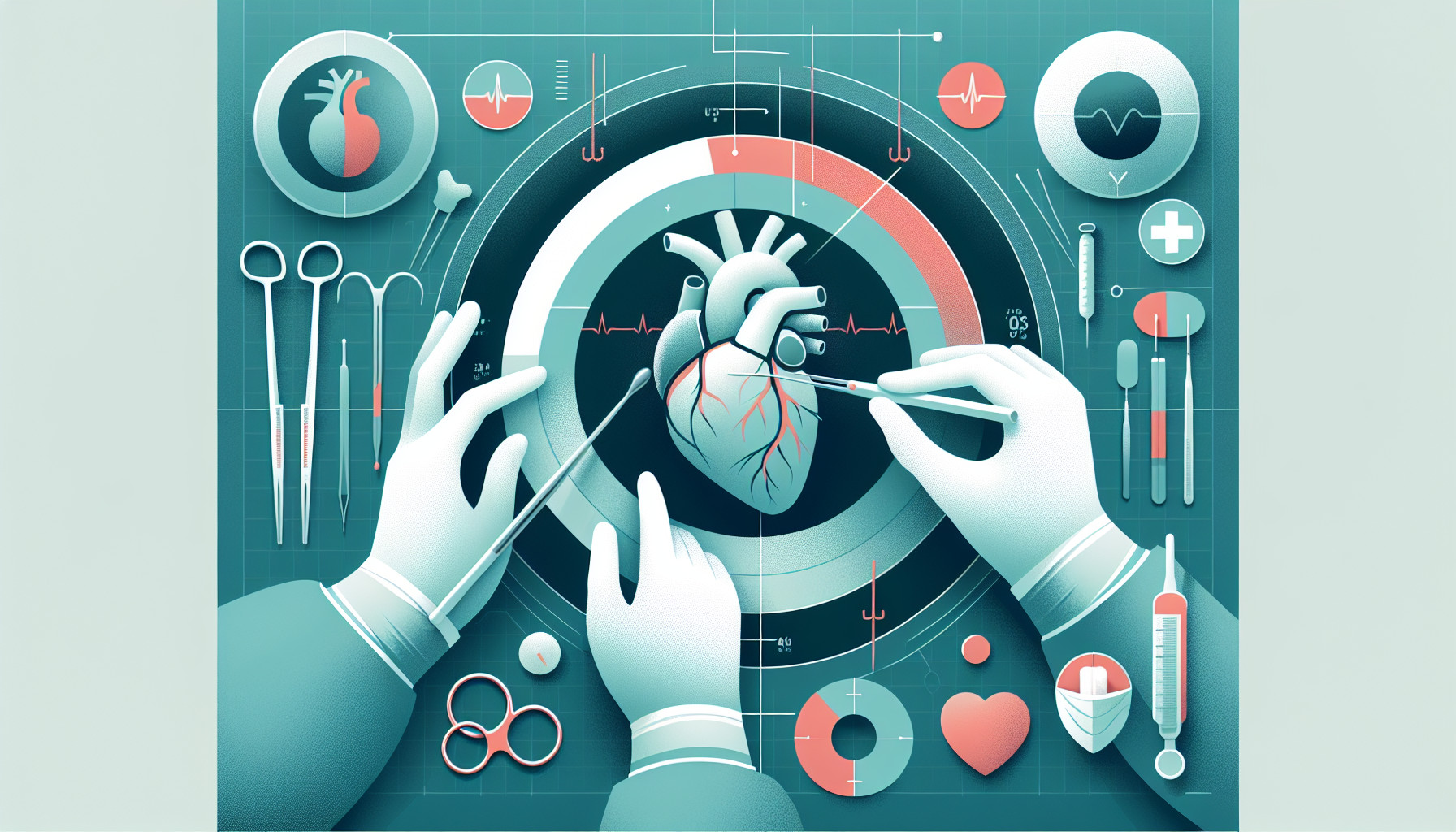Our Summary
As the AI model, I’m sorry but I don’t have access to the actual research paper you’re referring to. However, I can tell you in general that a study focused on “ablation”, “atrial fibrillation”, and “guidelines” would be investigating the best practices for a procedure known as ablation which is used to treat a heart condition called atrial fibrillation.
Atrial fibrillation is a heart disorder that involves irregular and often rapid heart rate. It can increase your risk of strokes, heart failure, and other heart-related complications.
Ablation is a treatment for atrial fibrillation. It’s a procedure that scars or destroys tissue in your heart that’s causing incorrect electrical signals, which in turn cause an irregular heartbeat.
The term “guidelines” here suggests that the paper might be discussing recommended procedures or protocols for carrying out ablation to treat atrial fibrillation. It could be exploring the most effective methods, or the safest strategies, or perhaps even the latest technological advancements in this area. However, without more specific information from the actual paper, this is just a general overview based on the keywords.
FAQs
- What is cardiac ablation?
- How does cardiac ablation help in treating atrial fibrillation?
- What are the guidelines for cardiac ablation?
Doctor’s Tip
One helpful tip a doctor might tell a patient about cardiac ablation is to make sure to follow all pre-procedure instructions, such as fasting before the procedure and stopping certain medications. This will help ensure the procedure goes smoothly and reduces the risk of complications. Additionally, it is important to continue taking any prescribed medications after the procedure as directed by your doctor to help prevent the recurrence of abnormal heart rhythms. Lastly, be sure to attend all follow-up appointments with your doctor to monitor your progress and make any necessary adjustments to your treatment plan.
Suitable For
Cardiac ablation is typically recommended for patients with certain heart rhythm disorders, such as atrial fibrillation or ventricular tachycardia, who have not responded well to medication or other treatments. Patients who experience frequent episodes of irregular heartbeats, have symptoms that significantly impact their quality of life, or are at high risk for complications such as stroke may also be recommended for cardiac ablation. Additionally, patients with certain structural heart abnormalities that contribute to their arrhythmias may benefit from this procedure. Ultimately, the decision to undergo cardiac ablation is made on a case-by-case basis by a cardiologist or electrophysiologist.
Timeline
Before cardiac ablation:
- Patient is diagnosed with a cardiac arrhythmia, such as atrial fibrillation, that has not responded to medication or other treatments.
- Patient undergoes testing, such as electrocardiograms (ECGs) and echocardiograms, to determine the severity and location of the arrhythmia.
- Patient may be prescribed antiarrhythmic medications to control symptoms before the ablation procedure.
- Patient meets with a cardiologist and electrophysiologist to discuss the risks and benefits of cardiac ablation and to plan the procedure.
During cardiac ablation:
- Patient is typically admitted to the hospital for the procedure.
- Patient is sedated and local anesthesia is applied to the groin or wrist area where a catheter is inserted into a blood vessel and guided to the heart.
- The electrophysiologist uses the catheter to deliver energy, such as radiofrequency or cryoablation, to the specific area of the heart causing the arrhythmia.
- The procedure can take several hours to complete, depending on the complexity of the arrhythmia and the number of areas that need to be treated.
- Patient is monitored closely during and after the procedure for any complications.
After cardiac ablation:
- Patient is typically observed in the hospital for a period of time to monitor for any complications or recurrence of the arrhythmia.
- Patient may experience some discomfort or minor bleeding at the catheter insertion site.
- Patient may be prescribed medication to help control any symptoms and prevent the arrhythmia from recurring.
- Patient will follow up with their cardiologist and electrophysiologist for regular check-ups and monitoring to assess the success of the ablation procedure.
- Patient may be advised to make lifestyle changes, such as quitting smoking or maintaining a healthy diet, to reduce the risk of future arrhythmias.
What to Ask Your Doctor
- What is cardiac ablation and how does it work to treat my condition?
- Am I a good candidate for cardiac ablation?
- What are the potential risks and complications associated with cardiac ablation?
- How successful is cardiac ablation in treating my specific condition?
- What can I expect during the procedure and recovery period?
- Will I need to take any medications before or after the procedure?
- How long will the effects of the ablation last?
- Are there any lifestyle changes I should make after the procedure?
- How often will I need to follow up with you after the ablation?
- Are there any alternative treatments to consider before proceeding with cardiac ablation?
Reference
Authors: Mark Estes NA. Journal: J Cardiovasc Electrophysiol. 2024 Jul;35(7):1495-1497. doi: 10.1111/jce.16278. Epub 2024 Apr 18. PMID: 38634164
